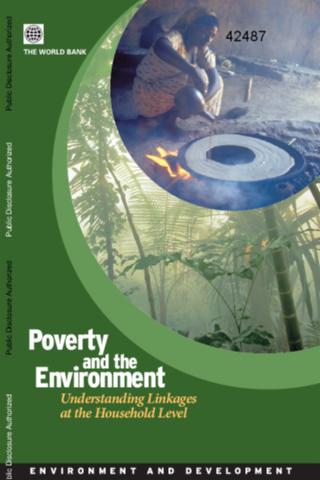Poverty and Environment : Understanding Linkages at the Household Level
This report seeks to present micro evidence on how environmental changes affect poor households. It focuses primarily on environmental resources that are outside the private sphere, particularly commonly held and managed resources such as forests, fisheries, and wildlife. The objectives for this volume are three-fold. It is first interested in using an empirical data-driven approach to examine the dependence of the poor on natural resources. The second objective is to examine the role of the environment in determining health outcomes.



